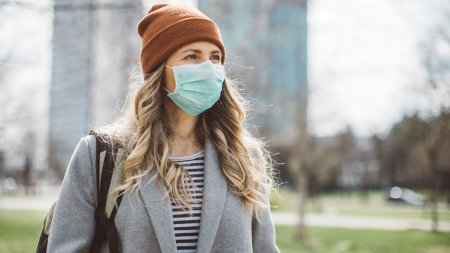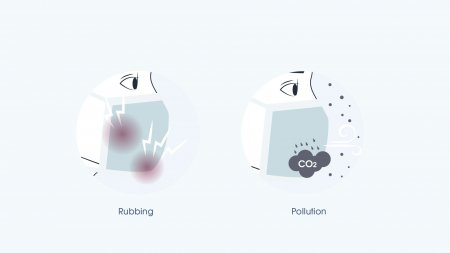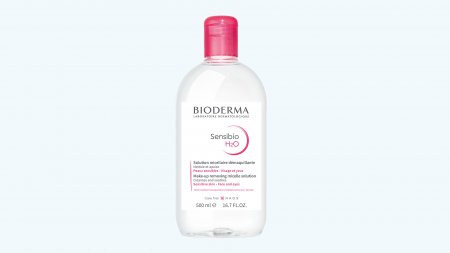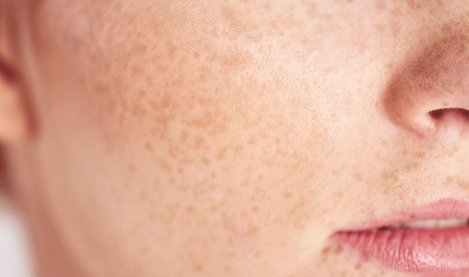Micellar water, the ideal cleanser for sensitive skin
Micellar water that needs no rinsing is more than ever sensitive skin’s greatest ally – even more so with masks, explains Professor Brigitte Dreno, Dermatologist at the Head of Department of Dermatology CHU Nantes (France).
"Compared to soap or cleansing milk, micellar water provides a balance between water and oil with phospholipids. The pollutant particles stick to these micelles and are then carried by the water and transferred to the cotton pad.
- Micellar water removes all make-up from skin.
- It eliminates sebum that has been altered by the carbon dioxide that we exhale under the mask.
- It does away with the fine particles of pollution on our face that can cause pigmented spots*.
- While removing sebum and particles, it also allows good quality sebum to reform on the skin’s surface.
- And most of all, it protects the skin barrier thanks to its pH that is the same as the skin’s, thereby maintaining :
- diversity in the skin’s microbiome, which prevents inflammation,
- moisturisation of the superficial epidermis layer with water.
In other words, it eliminates all particles of pollution and removes all make-up on the skin without needing to rinse, while respecting the microbiome and the barrier function. The more irritating side effects of wearing a face mask are therefore lessened by the moisturisation supplied by water (feeling of freshness) and the oil that strengthens the barrier function."
*Airborne particle exposure and extrinsic skin aging. Vierkötter A, Schikowski T, Ranft U, Sugiri D, Matsui M, Krämer U, Krutmann J. J Invest Dermatol. 2010 Dec;130(12):2719-26.
Micellar water makes it possible to better limit the irritating effects of wearing a face mask.
Brigitte Dreno, Dermatologist, Head of Department of Dermatology CHU Nantes (France)

















